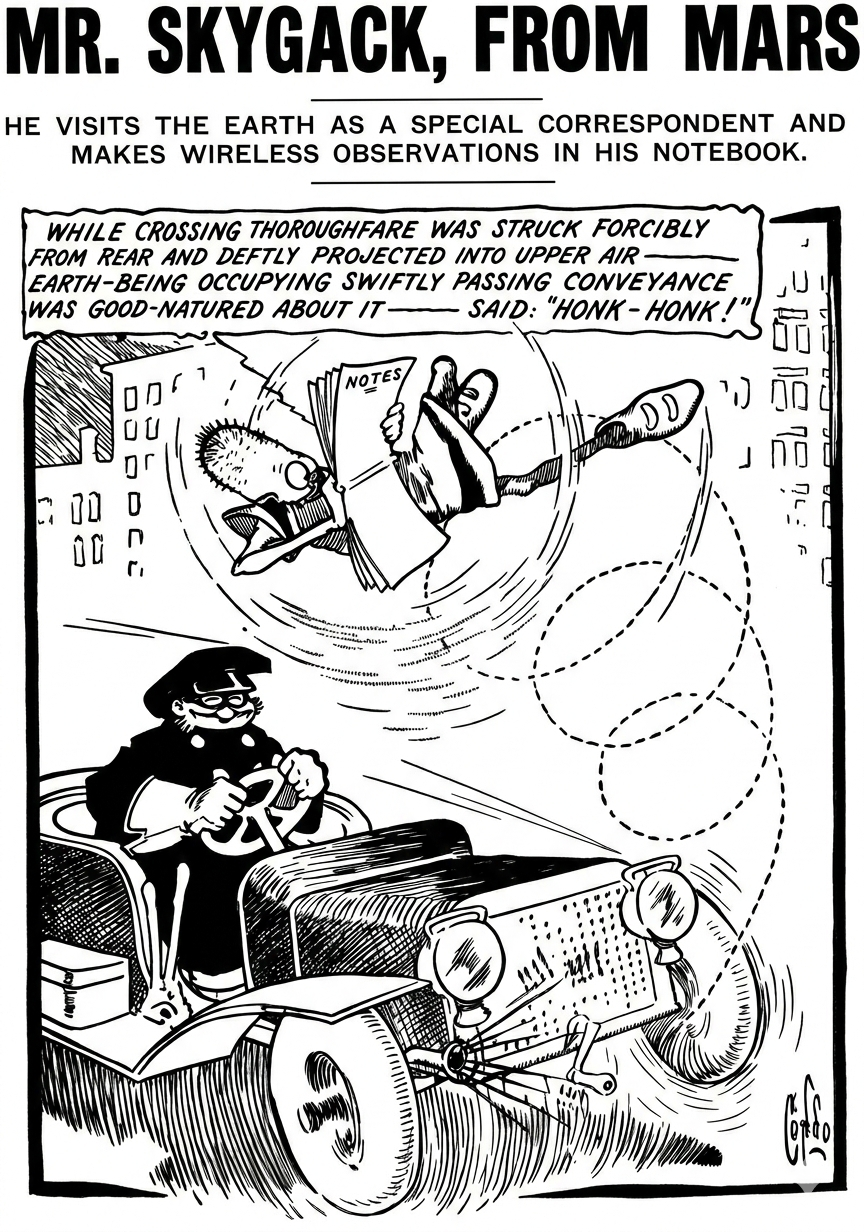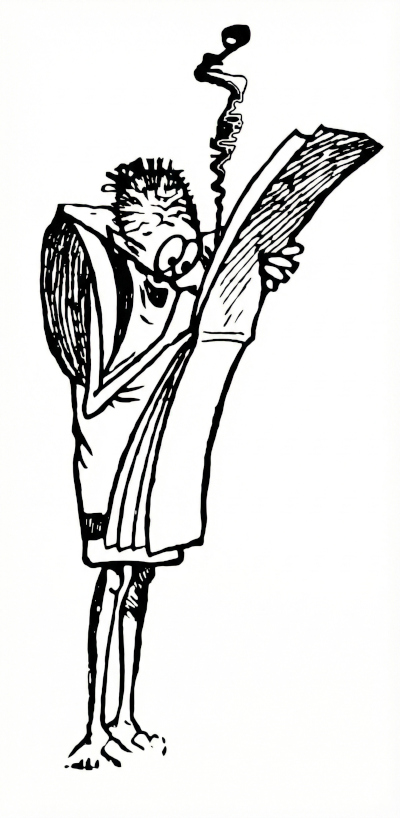
Issue 329
Ionospherics
 G'day, and welcome to Issue 329 of AntipodeanSF.
G'day, and welcome to Issue 329 of AntipodeanSF.
AntipodeanSF is devoted to the regular monthly publication of fabulous and original science-fiction, fantasy, or horror mini-stories of about 500 – 1000 words each, with occasional feature stories of 2000 words and beyond.
This Issue once again features an eclectic mix of twenty selected downside-up stories of speculation from authors dotted around this great globe.
"Mr Skygack, From Mars" is sourced from the Wikimedia Commons, by Armundo Dreisbach Condo. <https://commons.wikimedia.org/wiki/Category:Mr._Skygack,_from_Mars#>. Created October 26 1907.
Ooroo
Nuke
![]()
